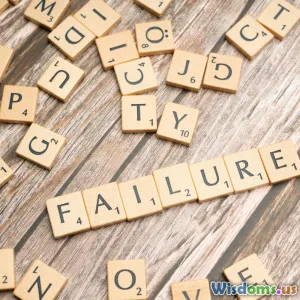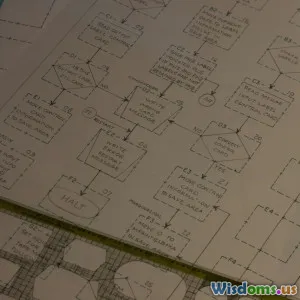
The Role of Failure in Success Stories
6 min read Explore how failure shapes success stories and motivates individuals to achieve their goals through resilience and learning. (0 Reviews)
The Role of Failure in Success Stories
Failure is often perceived as a negative experience, a roadblock in the journey toward success. However, a closer examination reveals that failure can be an invaluable teacher, a catalyst for growth, and a necessary component of the success narrative. In this article, we'll explore the multifaceted role of failure in success stories and how embracing setbacks can lead to greater achievements.
Understanding Failure
Before we delve deeper, it's essential to understand what failure means in the context of success. Failure is not merely the absence of success but a learning experience that can pave the way for future accomplishments. The stigma surrounding failure often leads to avoidance, but recognizing it as a natural part of the journey can redefine its impact on our lives.
The Psychological Impact of Failure
Psychologically, failure can trigger a range of emotions, including disappointment, frustration, and self-doubt. However, these feelings can also serve as motivators, pushing individuals to reassess their goals, strategies, and mindsets.
- Resilience Development: Experiencing failure helps to build resilience, enabling individuals to bounce back stronger. Studies show that those who face and overcome challenges often develop a more robust sense of self-efficacy, which is vital for long-term success.
- Growth Mindset: Adopting a growth mindset—believing that abilities can be developed through dedication and hard work—can transform failure into a stepping stone. This mindset fosters a love for learning and resilience, essential traits for achieving success.
Learning from Setbacks
Failure provides insights that success often cannot. When individuals confront obstacles, they are forced to analyze what went wrong, leading to critical self-reflection and personal growth. This process can open new avenues for innovation and improvement.
Examples of Learning from Failure
- Thomas Edison: Perhaps one of the most famous examples is Thomas Edison, who famously stated, "I have not failed. I've just found 10,000 ways that won't work." His persistence in the face of repeated failures ultimately led to the invention of the electric light bulb, revolutionizing the world.
- J.K. Rowling: Before becoming a household name with the Harry Potter series, J.K. Rowling faced numerous rejections from publishers. Her determination and willingness to learn from her experiences eventually led to her massive success.
Failure as a Motivator
For many, failure can act as a powerful motivator. When faced with setbacks, individuals often feel a renewed sense of purpose and determination to prove themselves. This drive can lead to innovative thinking and alternative approaches to problem-solving.
The Role of Community and Support
- Encouragement from Others: Sharing experiences of failure with supportive peers or mentors can provide encouragement and insights. Communities that foster open discussions about failure help individuals realize they are not alone in their struggles.
- Celebrating Failures: Some organizations and teams have begun to celebrate failures as learning opportunities rather than setbacks. This shift in perspective can cultivate an environment of innovation, where individuals feel safe to take risks without the fear of stigma.
Conclusion: Embracing Failure for Future Success
The journey to success is rarely a straight line; it is often paved with twists, turns, and failures. By embracing failure as a necessary part of the process, individuals can cultivate resilience, learn invaluable lessons, and find new paths to achievement. Ultimately, it is not the failure itself that defines us, but how we respond to it. Through reflection, support, and a growth mindset, failure can transform from a stumbling block into a powerful stepping stone toward success.
In the end, the most compelling success stories are not those devoid of failure but those that illustrate the strength and tenacity of individuals who refused to give up, learning and growing from every setback along the way.
Rate the Post
User Reviews
Popular Posts



















